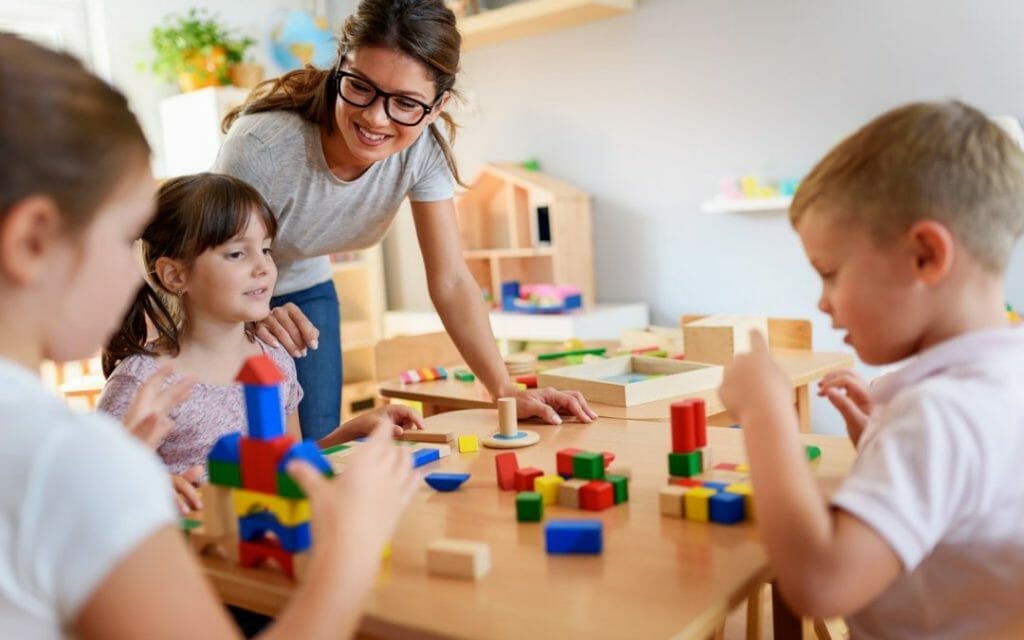Beyond Traditional Materials: Embracing a Holistic Approach to Montessori Education
October 10, 2023 2023-10-10 12:04
Beyond Traditional Materials: Embracing a Holistic Approach to Montessori Education
Introduction
Montessori education is renowned for its innovative and child-centered approach to learning. Founded by Dr. Maria Montessori in the early 20th century, this educational philosophy has gained widespread recognition for its emphasis on nurturing independent, creative, and critical-thinking individuals. While the iconic Montessori materials are integral to this approach, it’s essential to understand that Montessori is not just about wooden puzzles and sensory activities. Instead, it’s a holistic philosophy that shapes the entire educational experience. In this article, we will explore the profound philosophy and practices that form the foundation of Montessori education, offering valuable insights for educators and parents alike.
The Montessori Philosophy
Montessori education is built upon a deep respect for children’s natural abilities and curiosity. At its core, the Montessori philosophy recognizes that children are born with an innate desire to learn and explore their environment. Dr. Montessori believed that the role of an educator is not to impart knowledge but to guide and support this natural process of discovery.
- The Prepared Environment
Central to Montessori education is the concept of the prepared environment. In a Montessori classroom, everything, from the furniture and materials to the layout and organization, is intentionally designed to foster independence and exploration. Children are encouraged to move freely, choose their activities, and work at their own pace.
- Respect for Individuality
Montessori educators recognize that each child is unique, with their own interests, strengths, and learning styles. Therefore, they create an environment that respects and accommodates these differences. The goal is to empower children to take ownership of their education and pursue their passions.
- The Role of the Educator
Montessori teachers are more than just instructors; they are facilitators and observers. They carefully observe each child to understand their needs and interests, providing guidance and support when necessary. This approach promotes a strong teacher-student relationship built on trust and mutual respect.
Beyond Traditional Materials
While Montessori materials like the Pink Tower, Cylinder Blocks, and the Moveable Alphabet are iconic elements of Montessori classrooms, the philosophy extends far beyond these physical tools. It is about creating an environment where children are encouraged to explore the world in a holistic manner, encompassing not only academic but also social, emotional, and practical life skills.
- Practical Life Skills
Montessori education places a significant emphasis on practical life skills. Children are taught how to perform everyday tasks such as pouring, washing dishes, and buttoning shirts. These activities not only promote independence but also help develop fine and gross motor skills, concentration, and attention to detail.
- Emotional Intelligence
Montessori educators understand that emotional intelligence is just as crucial as academic knowledge. In a Montessori classroom, children are encouraged to express their feelings, resolve conflicts peacefully, and develop empathy for others. These skills are vital for building healthy relationships and emotional well-being.
- Self-Directed Learning
Perhaps the most profound aspect of Montessori education is its focus on self-directed learning. Children are given the autonomy to choose their activities and explore subjects that pique their interest. This approach not only fosters a love for learning but also prepares students to become lifelong, self-motivated learners.
Conclusion
Montessori education is more than a collection of educational materials; it is a holistic philosophy that respects and nurtures the innate potential of every child. By embracing the Montessori philosophy, educators and parents can create environments that foster independence, creativity, and a love for learning. To gain a deeper understanding of Montessori education, consider watching the enlightening video [insert link: https://youtu.be/ldccT3VeDJ4]. In doing so, you’ll discover the profound impact this approach can have on the development and future success of our children.
Related Posts
Beyond Traditional Materials: Embracing a Holistic Approach to Montessori Education
October 10, 2023 2023-10-10 12:04Popular Tags



























